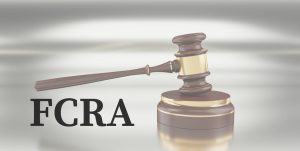Foreign Contribution Regulation Act (FCRA):

The Supreme Court asked 6,000-odd NGOs to go back to the government for redressal of their grievances on non-renewal of their Foreign Contribution Regulation Act (FCRA) registration.
- The FCRA was enacted during the Emergency in 1976 in an atmosphere of apprehension that foreign powers were interfering in India’s affairs by pumping in funds through independent organisations.
- These concerns had been expressed in Parliament as early as in 1969.
- The law sought to regulate foreign donations to individuals and associations so that they functioned “in a manner consistent with the values of a sovereign democratic republic”.
- An amended FCRA was enacted under the UPA government in 2010 to “consolidate the law” on utilisation of foreign funds, and “to prohibit” their use for “any activities detrimental to national interest”.
- The law was amended again by the current government in 2020, giving the government tighter control and scrutiny over the receipt and utilisation of foreign funds by NGOs.
- Broadly, the FCRA requires every person or NGO wishing to receive foreign donations to be registered under the Act, to open a bank account for the receipt of the foreign funds in State Bank of India, Delhi, and to utilise those funds only for the purpose for which they have been received and as stipulated in the Act.
- They are also required to file annual returns, and they must not transfer the funds to another NGO.
- The Act prohibits receipt of foreign funds by candidates for elections, journalists or newspaper and media broadcast companies, judges and government servants, members of legislature and political parties or their office-bearers, and organisations of a political nature.




